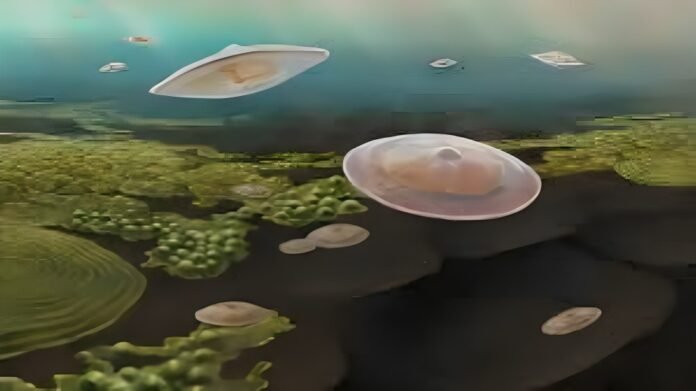Scientists have uncovered new evidence suggesting that complex life on Earth might have emerged 1.5 billion years earlier than previously believed. In Gabon, the researchers found indications of environmental conditions suitable for animal life dating back 2.1 billion years. However, these life forms were confined to an inland sea and did not spread globally, eventually becoming extinct.
Controversial Findings
These findings challenge the conventional view that animal life began around 635 million years ago. The debate centers around the Francevillian formations found in Franceville. Gabon, where some scientists argue the structures are fossils. While others are skeptical. The researchers examined the surrounding rock for nutrients like oxygen. And phosphorus that could support life, with Professor Ernest Chi Fru from Cardiff University leading the international team.
The Nature of Early Life Forms
Professor Chi Fru hypothesizes that these early life forms resembled slime molds, brainless single-cell organisms that reproduce via spores. However, not all experts are convinced. Professor Graham Shields from University College London, who was not involved in the study, expressed reservations. He acknowledged the possibility of higher nutrient levels 2.1 billion years ago but questioned whether this could lead to the diversification needed for complex life.
Supporting the Theory
Despite the skepticism, Professor Chi Fru believes his research offers insights into the processes that led to life on Earth. He suggests that the evidence of fossils and oxygen supports the idea that complex life forms emerged during this early period, similar to the Cambrian explosion 635 million years ago. According to Chi Fru, this discovery helps to understand life’s origins better.
The Francevillian Formation
The idea that complex life could have originated earlier than thought first emerged around ten years ago with the discovery of the Francevillian formation. Chi Fru and his colleagues argue that this formation contains fossils indicative of life capable of movement. However, these findings are not universally accepted, and further evidence is being sought.
The Role of Geological Processes
To bolster their theory, the team analyzed sediment cores from the rock in Gabon. They found that a “laboratory” for life might have been created due to the collision of two continental plates underwater, leading to volcanic activity. This collision isolated a nutrient-rich shallow marine inland sea, providing photosynthesis conditions and producing significant amounts of oxygen.
Conclusion and Future Research
While PhD student Elias Rugen at the Natural History Museum agrees that the oceanic cycles at this time were unusual, he emphasizes the need for more evidence to support these claims. The discovery continues to fuel debate about the timeline and processes of life’s origins on Earth.


